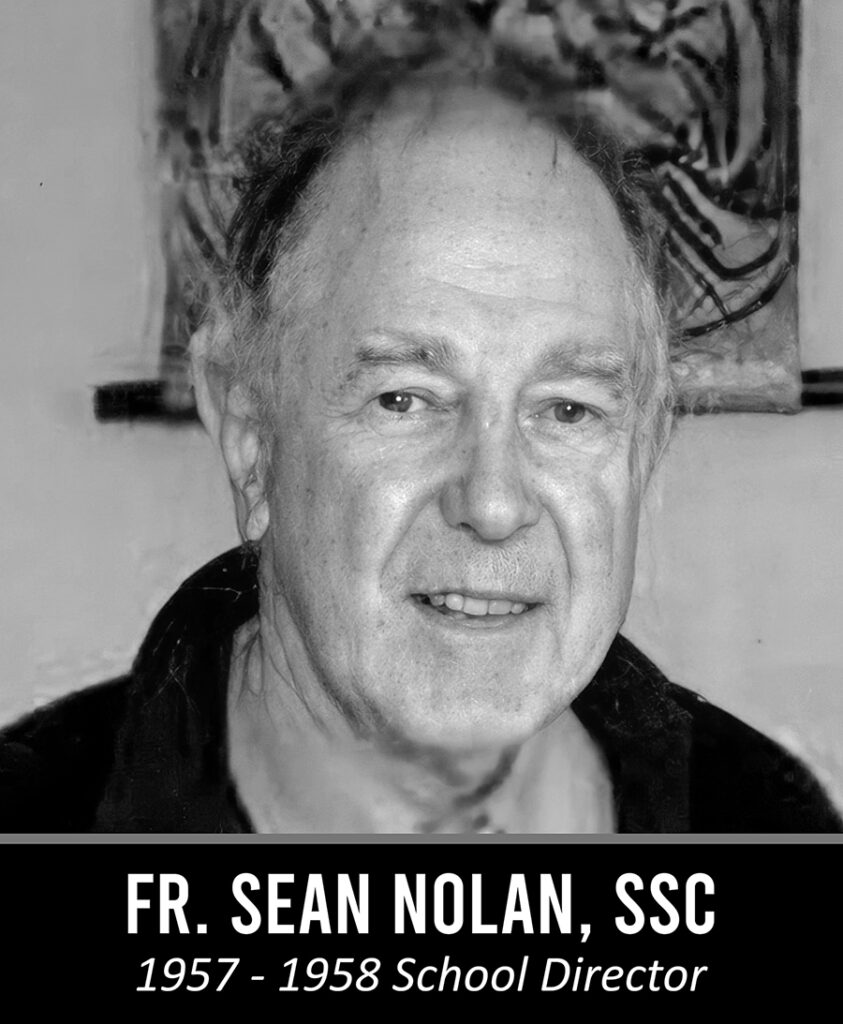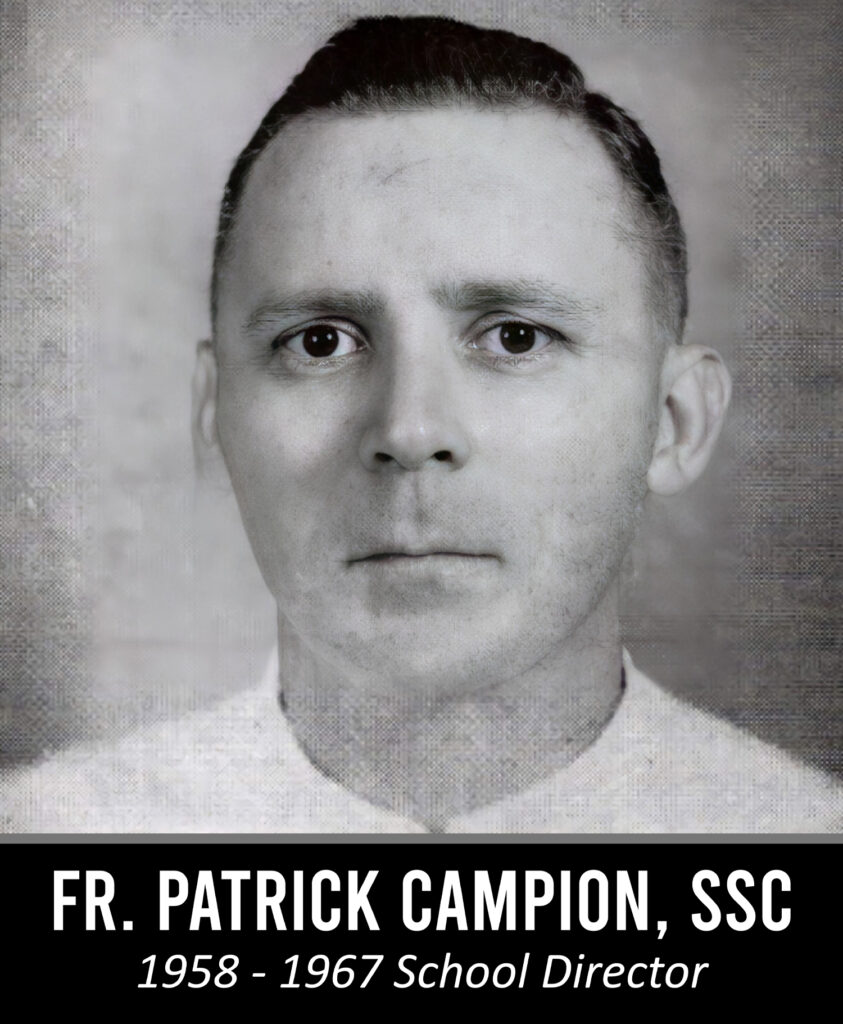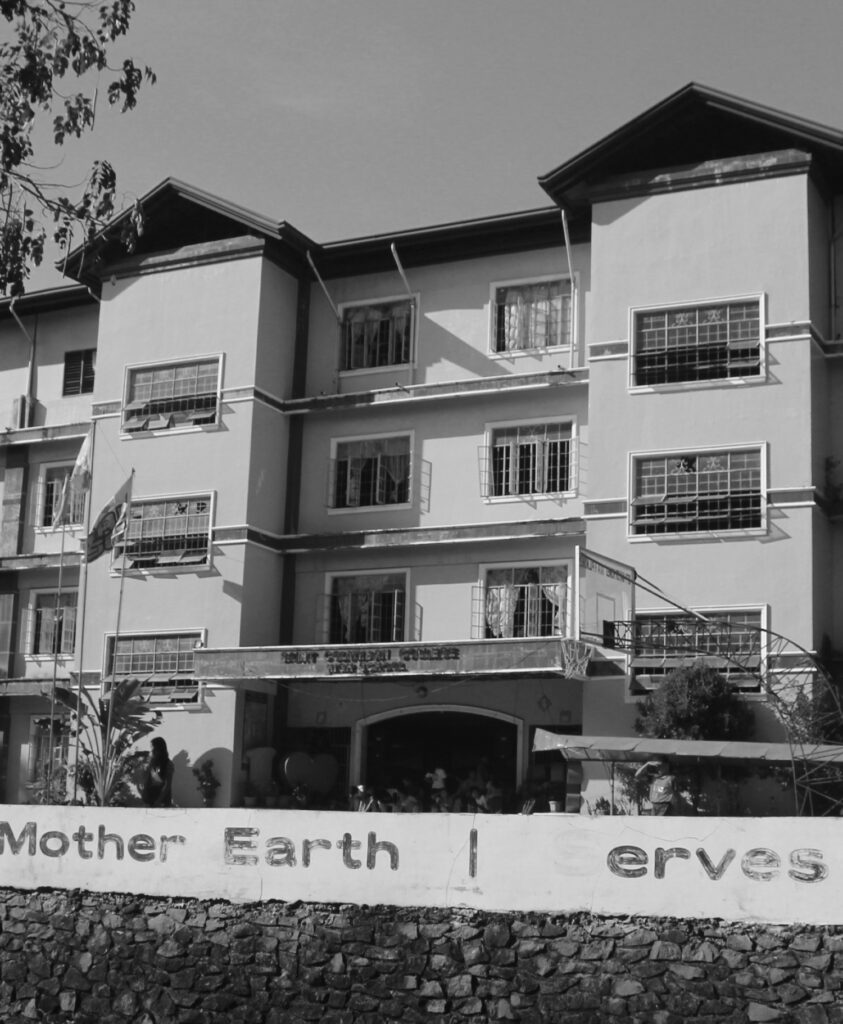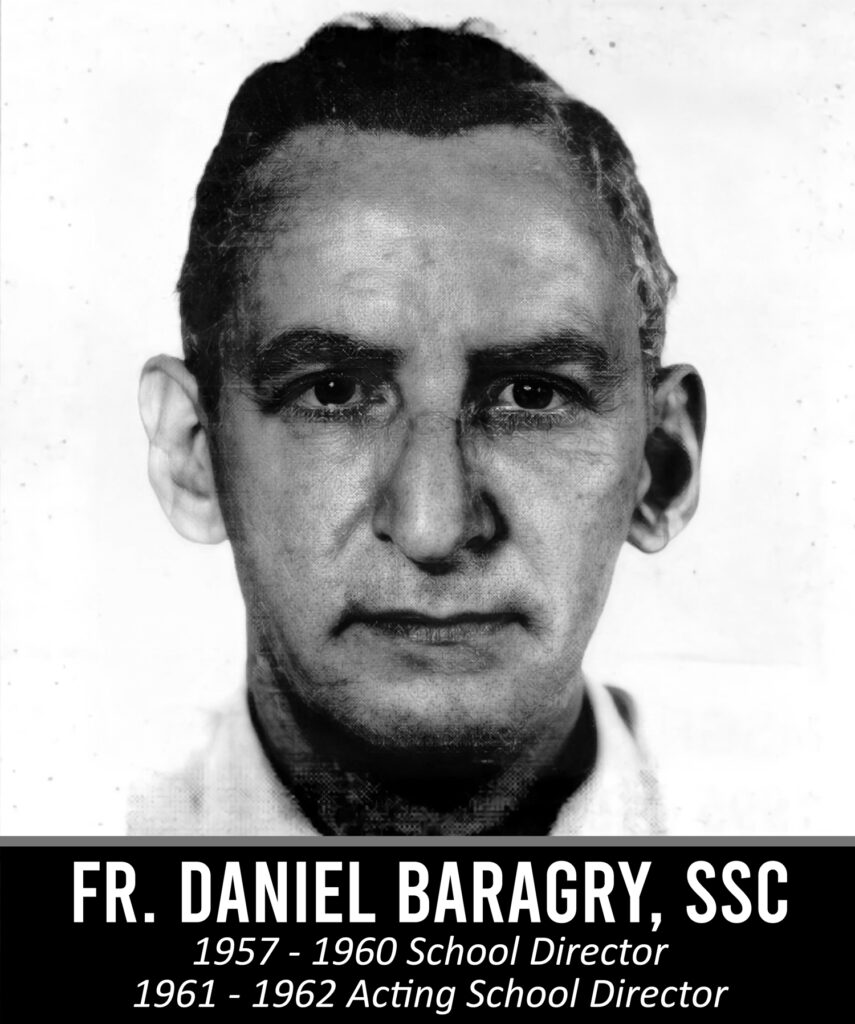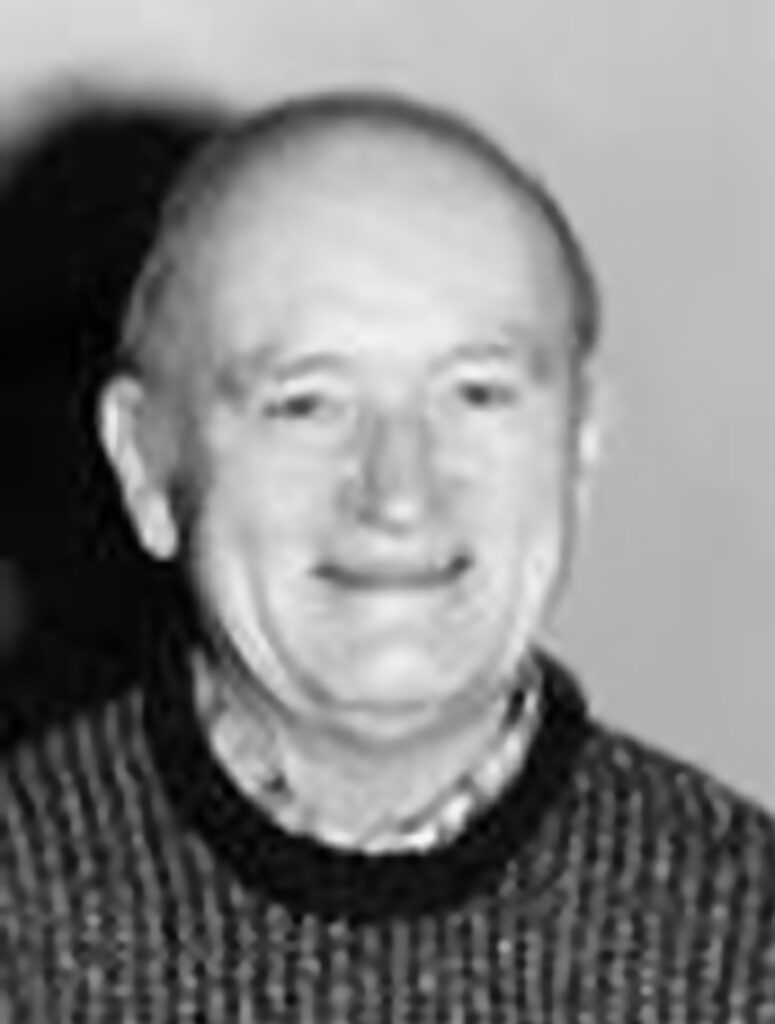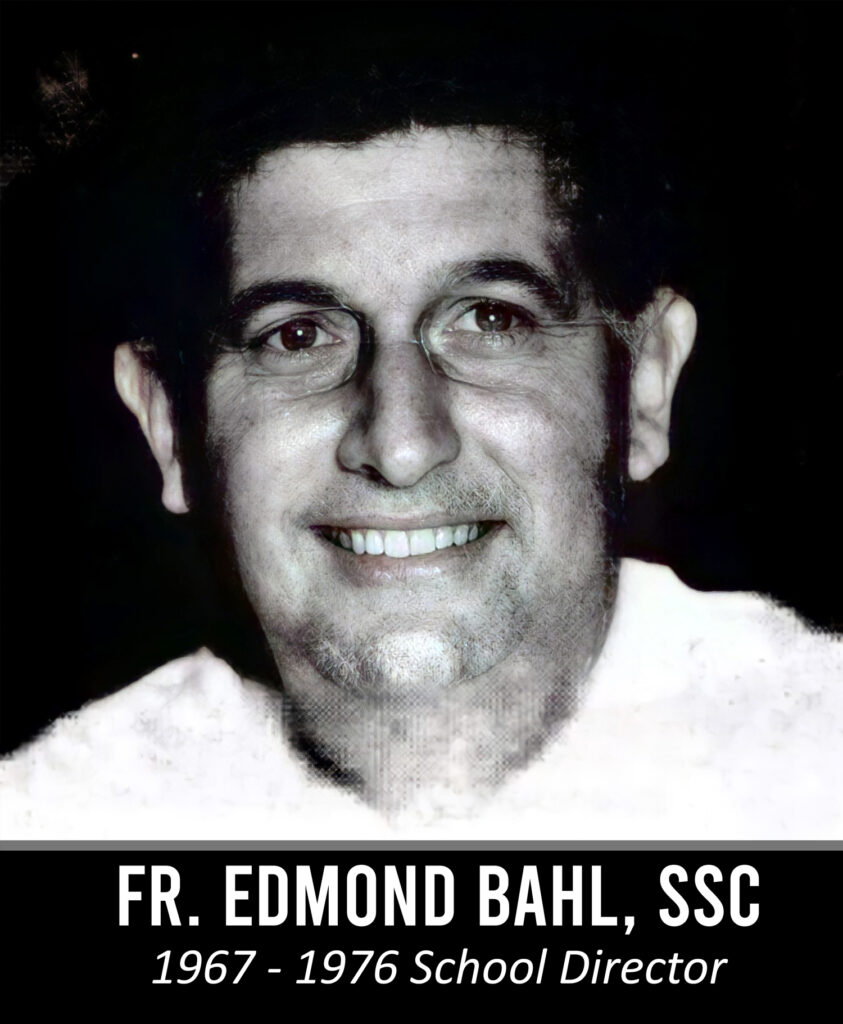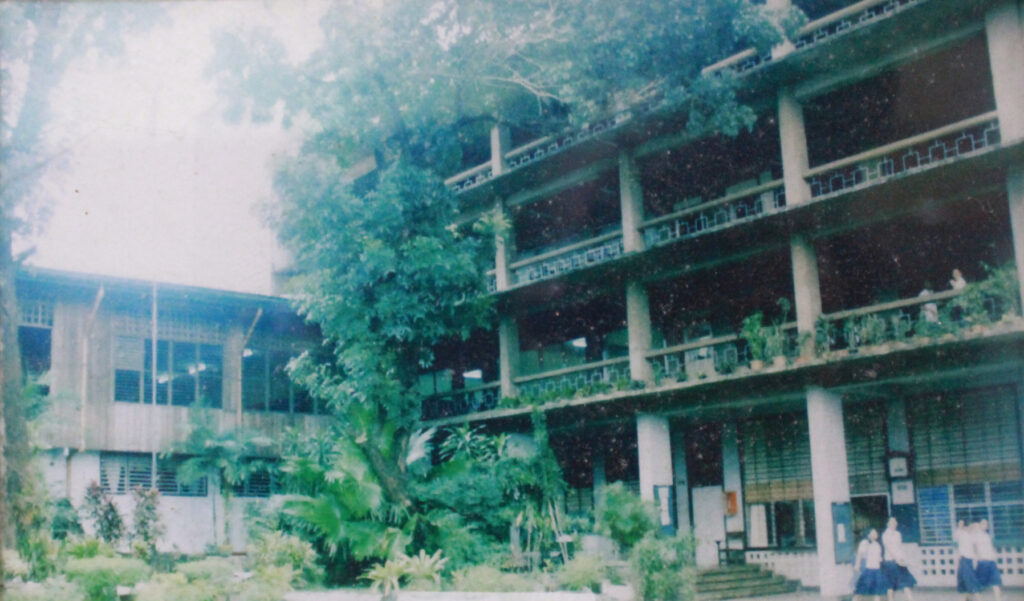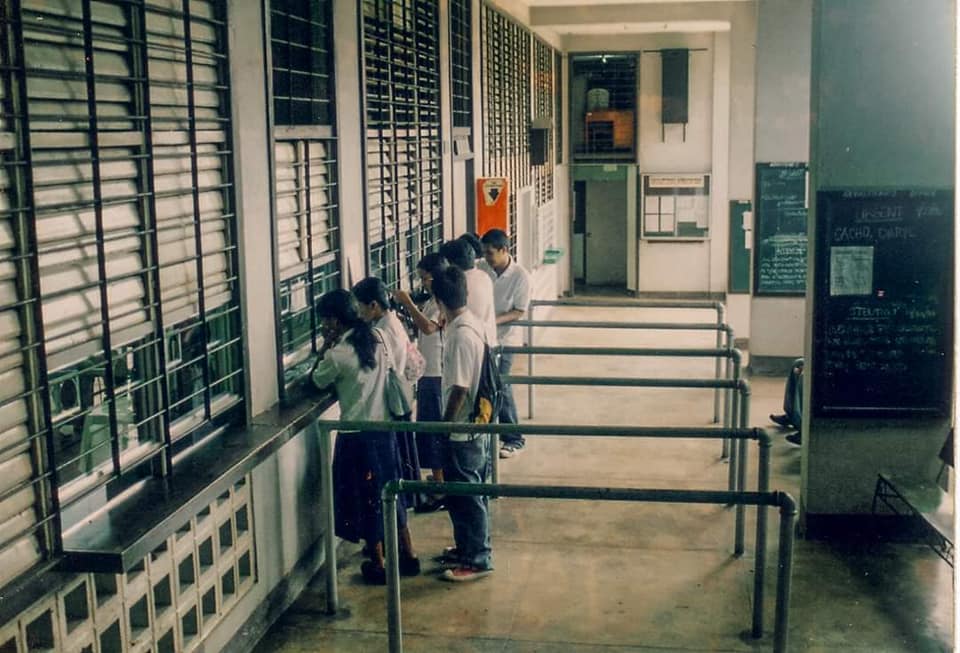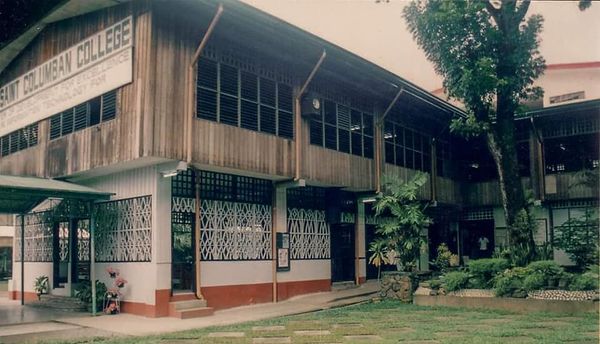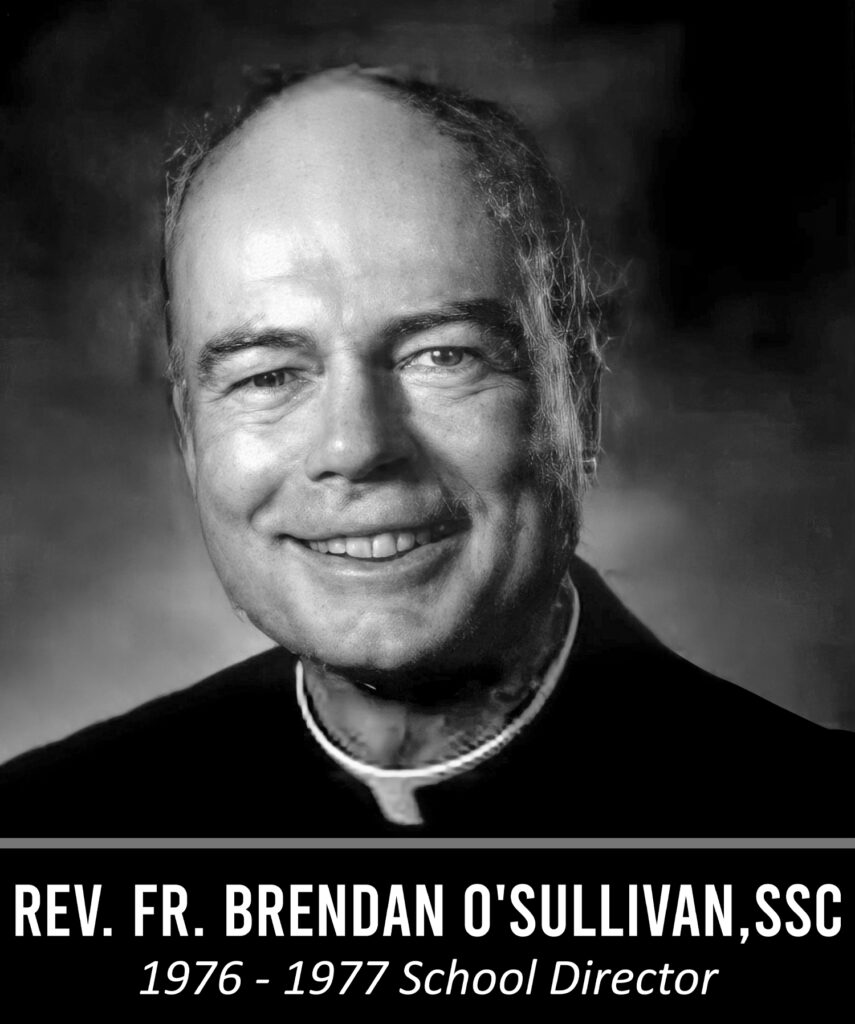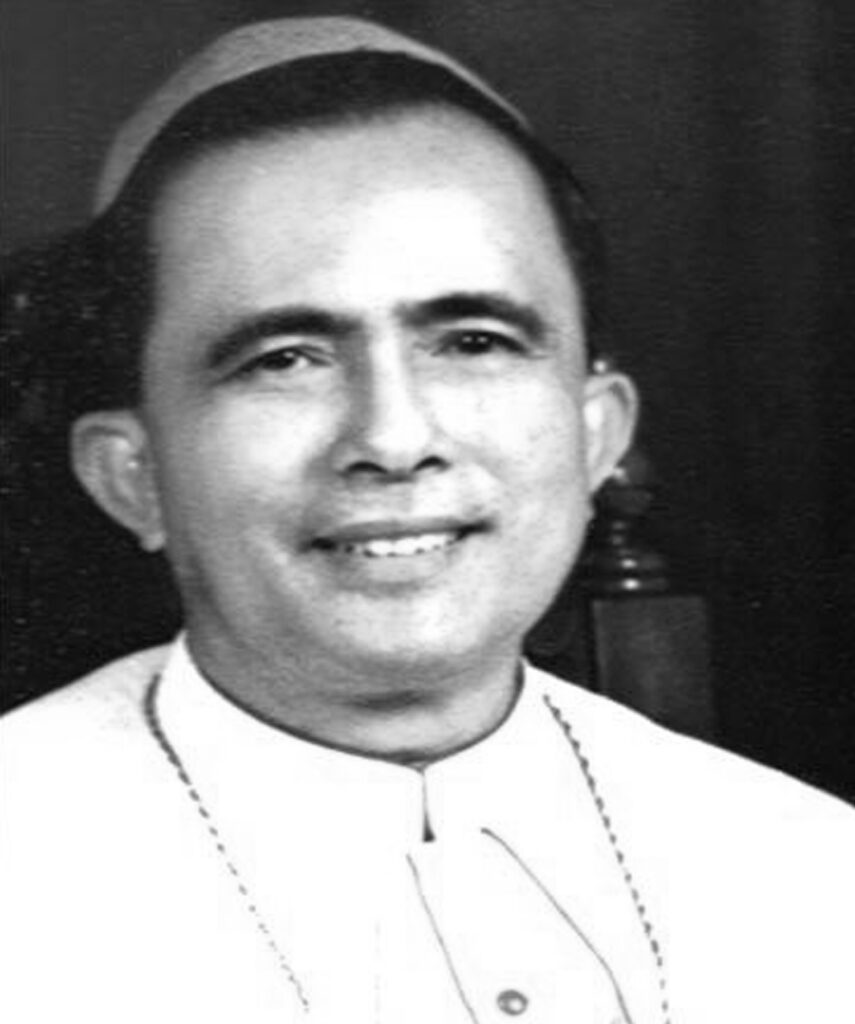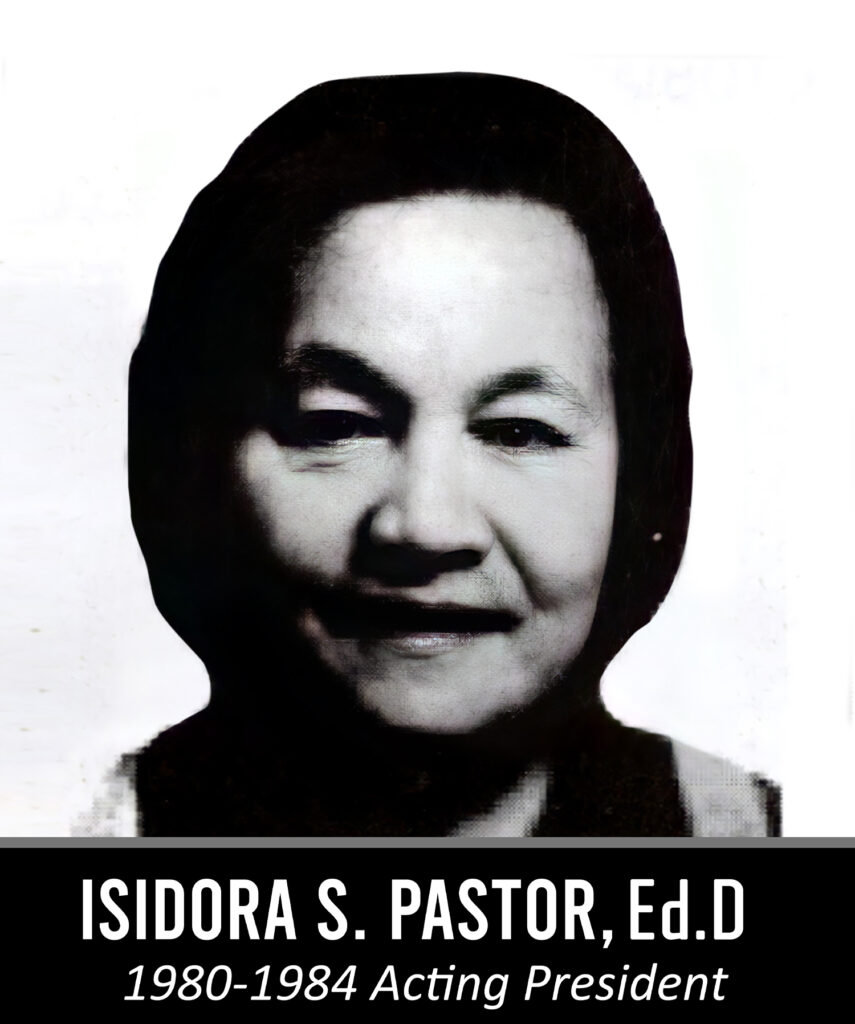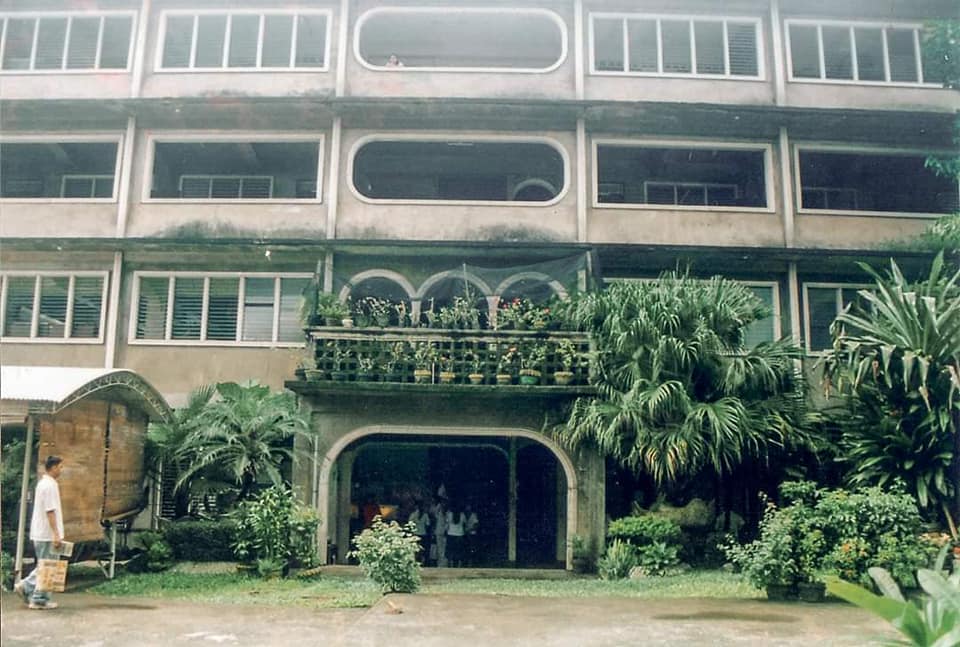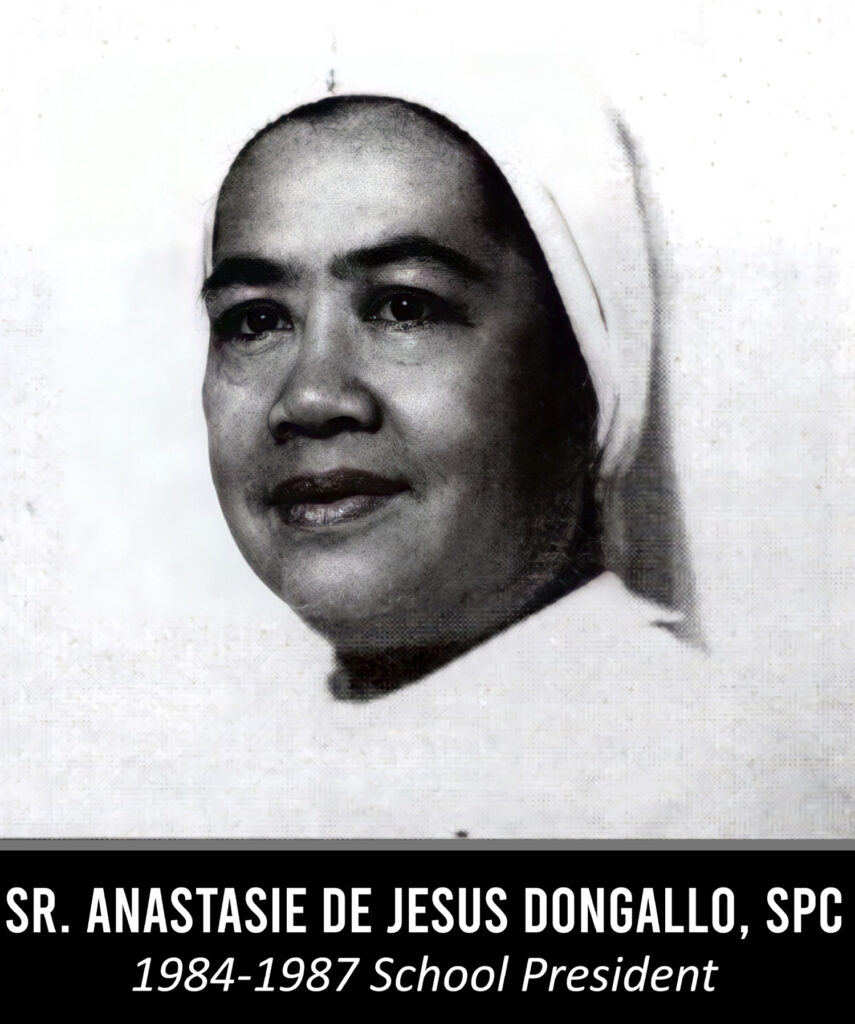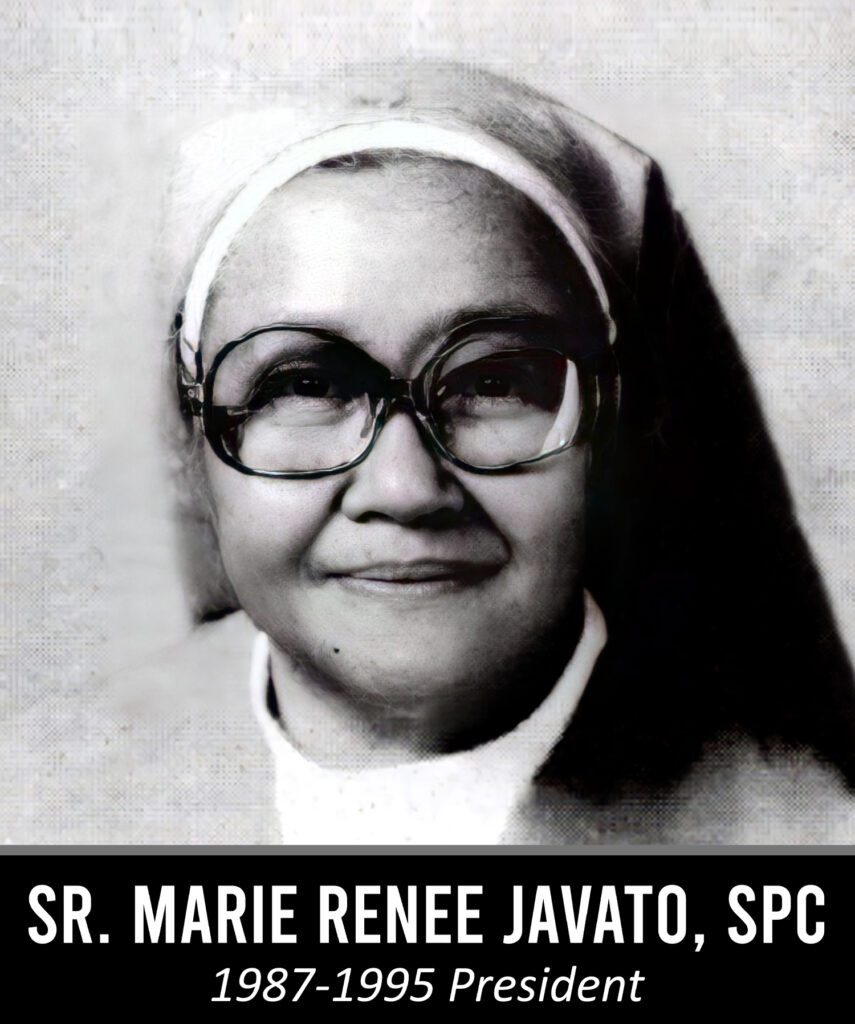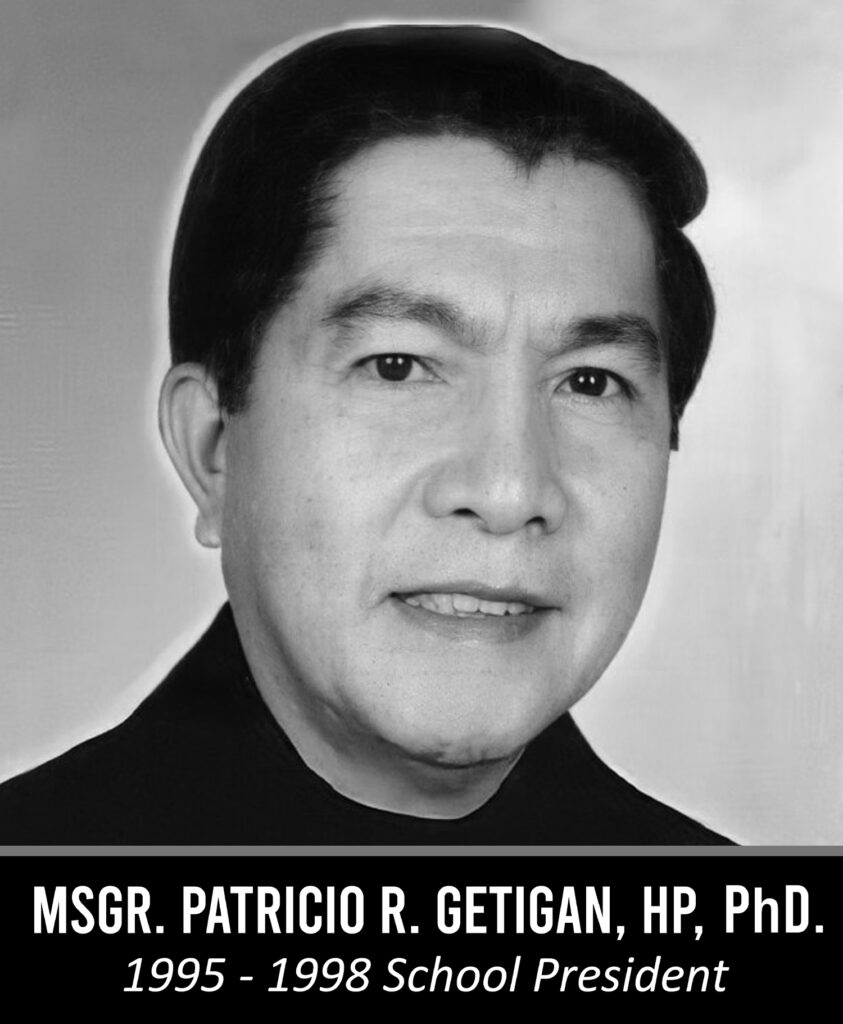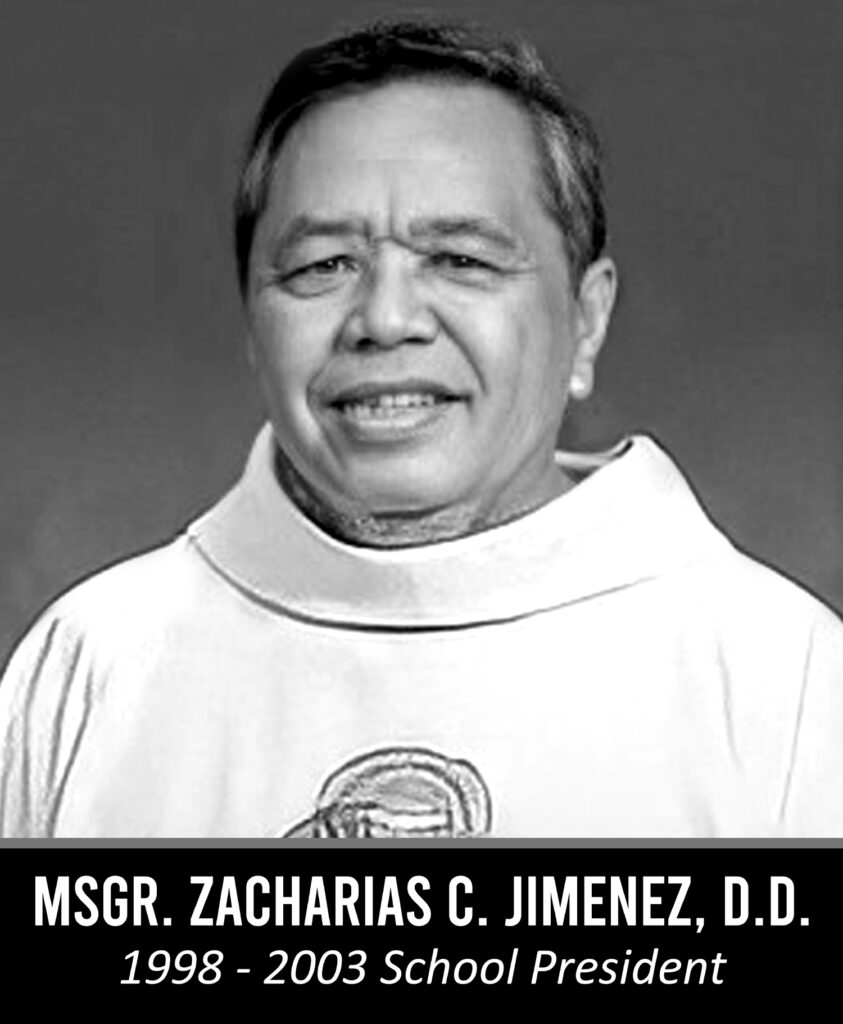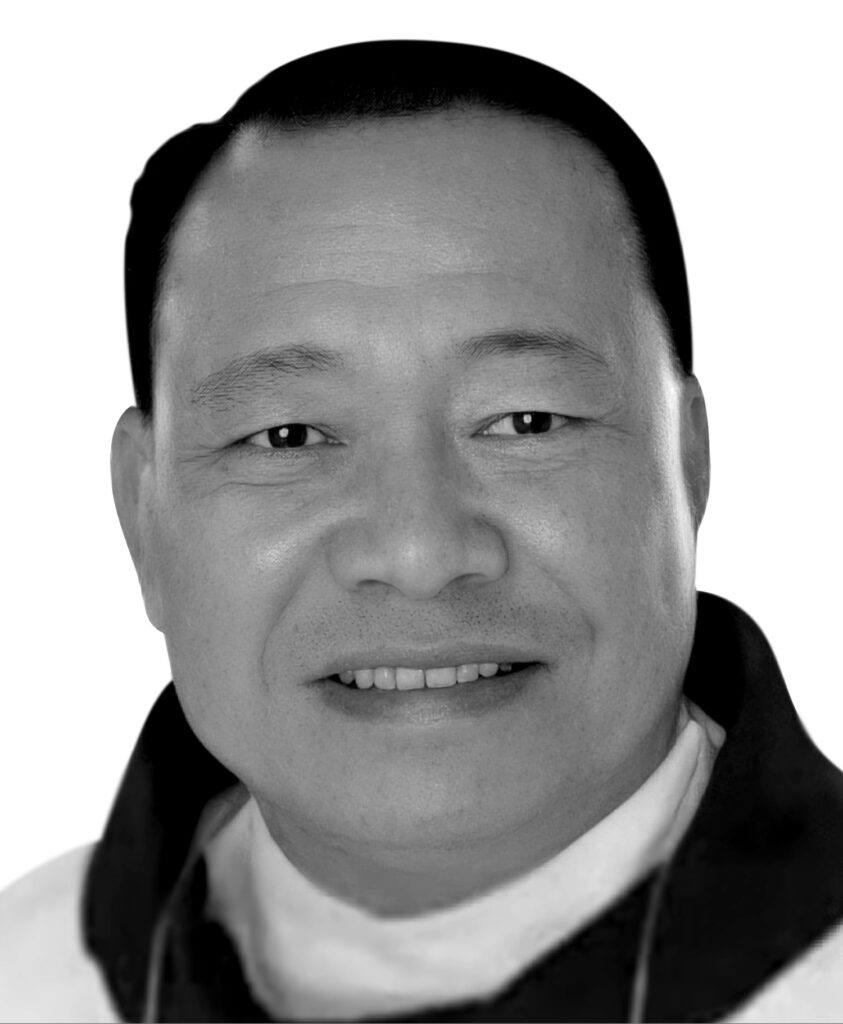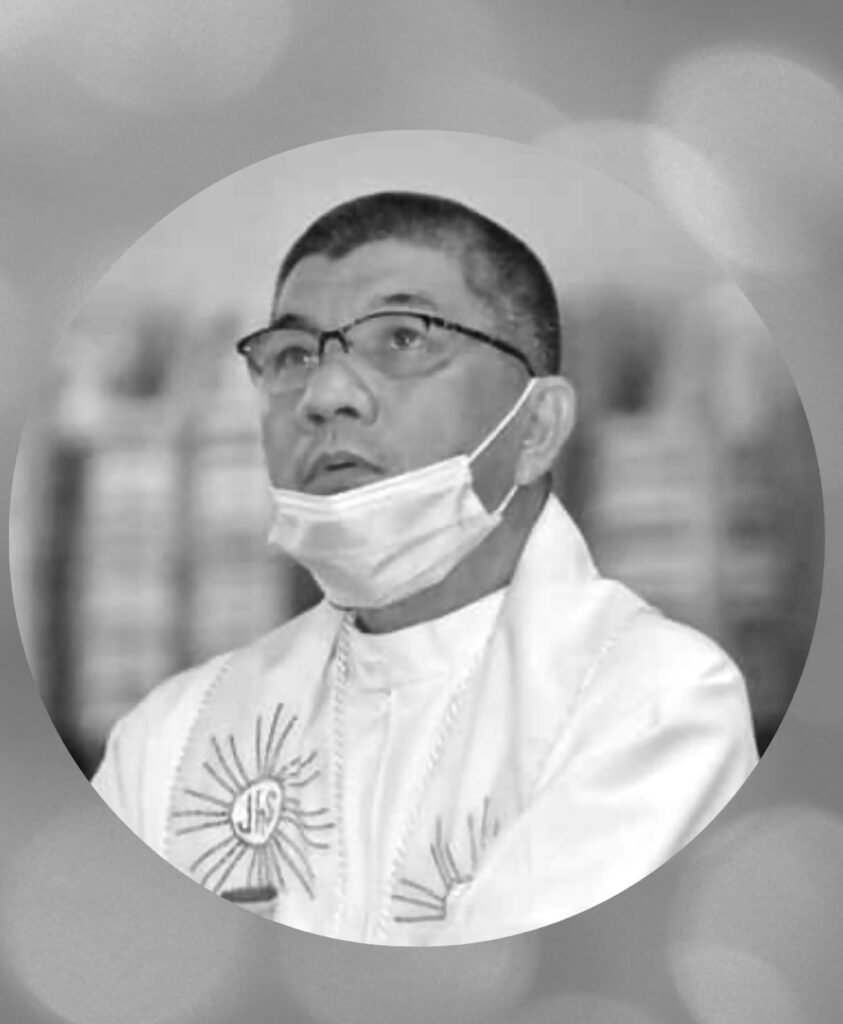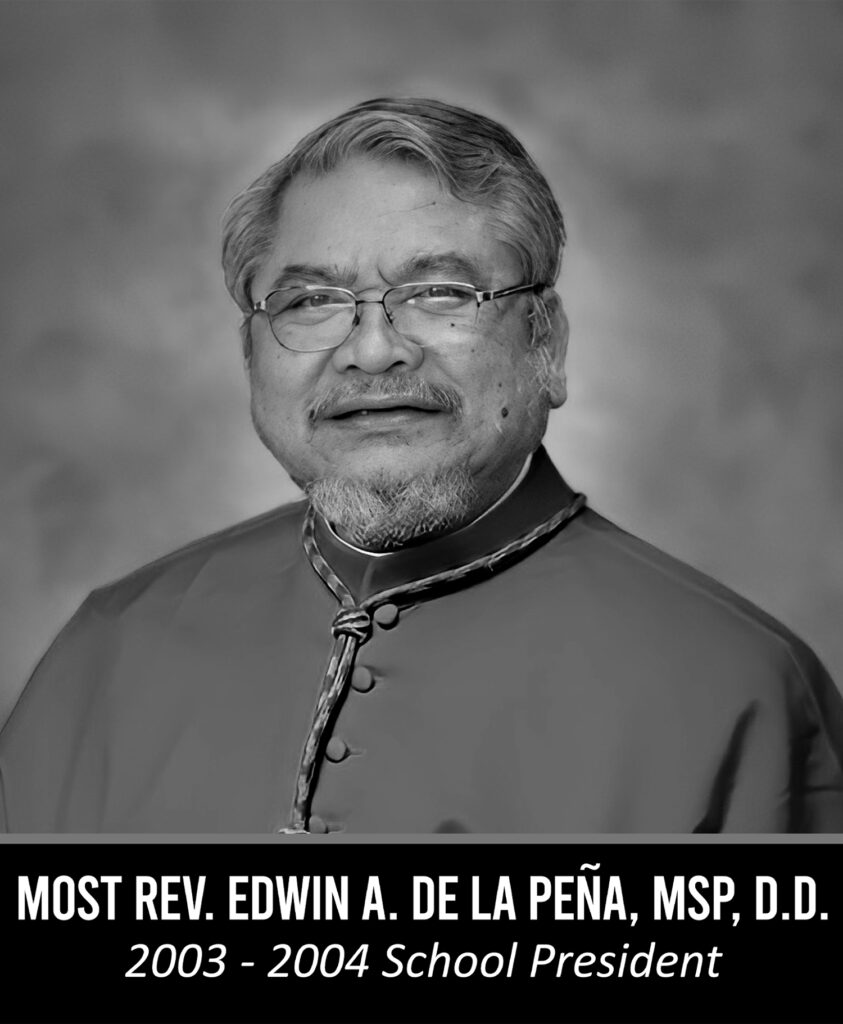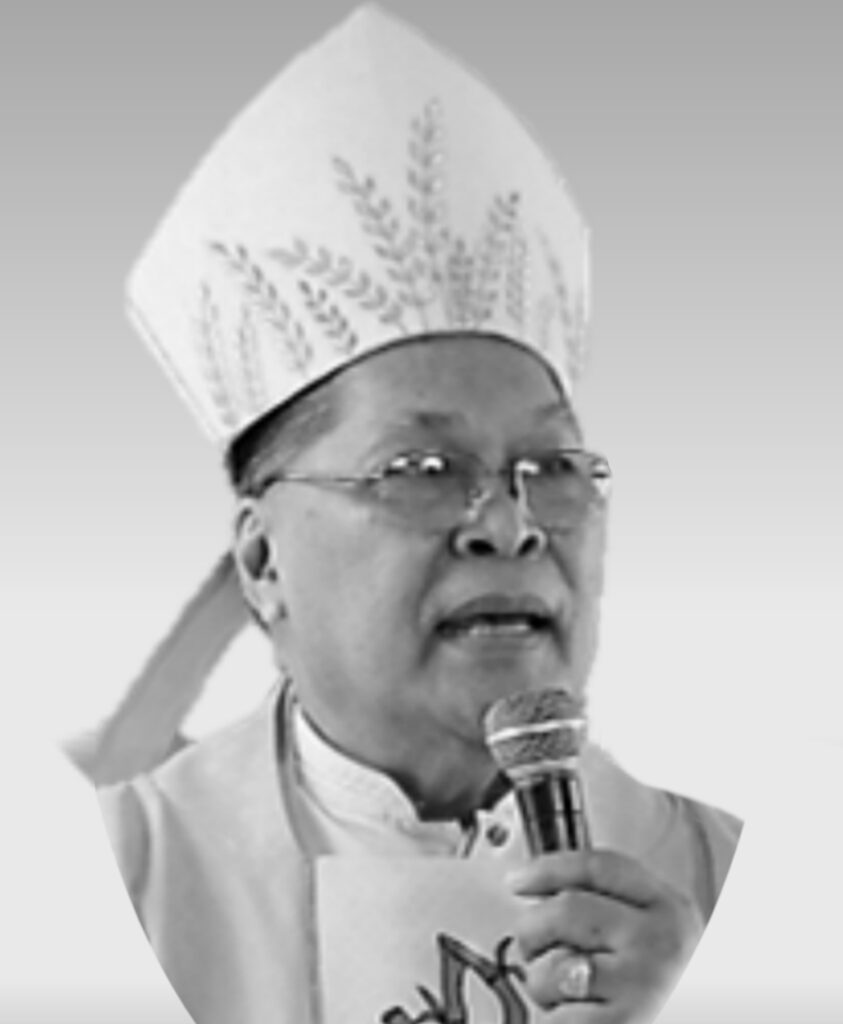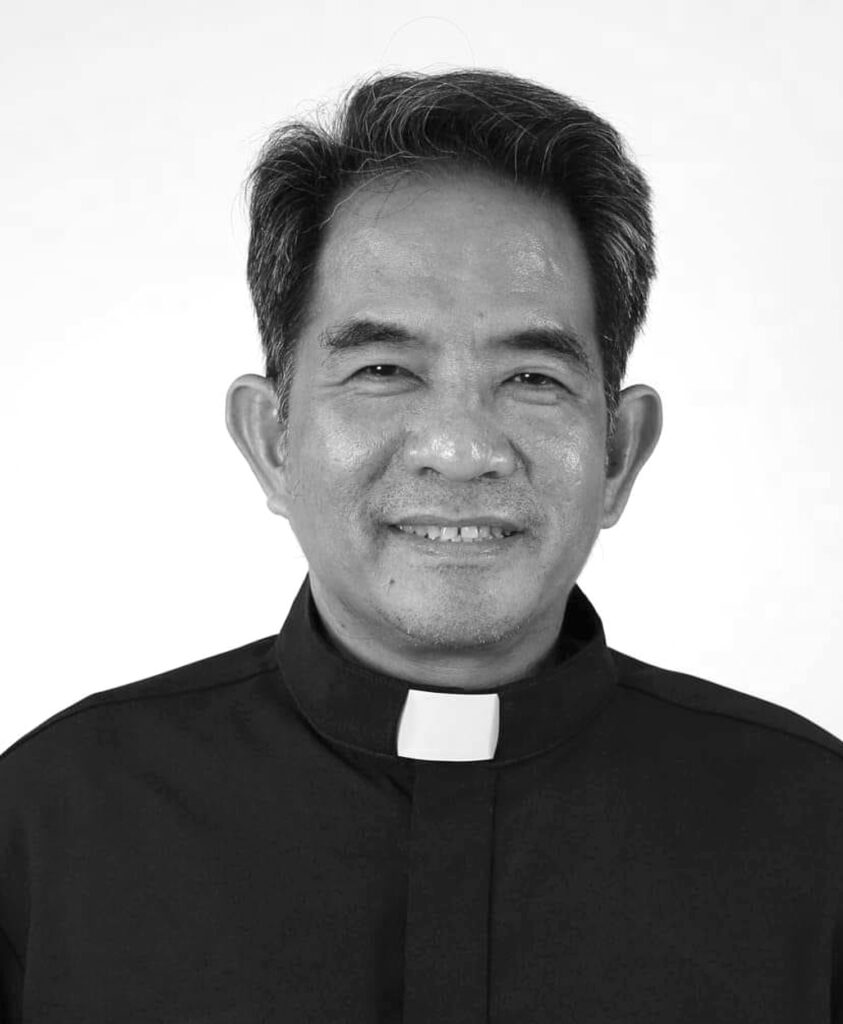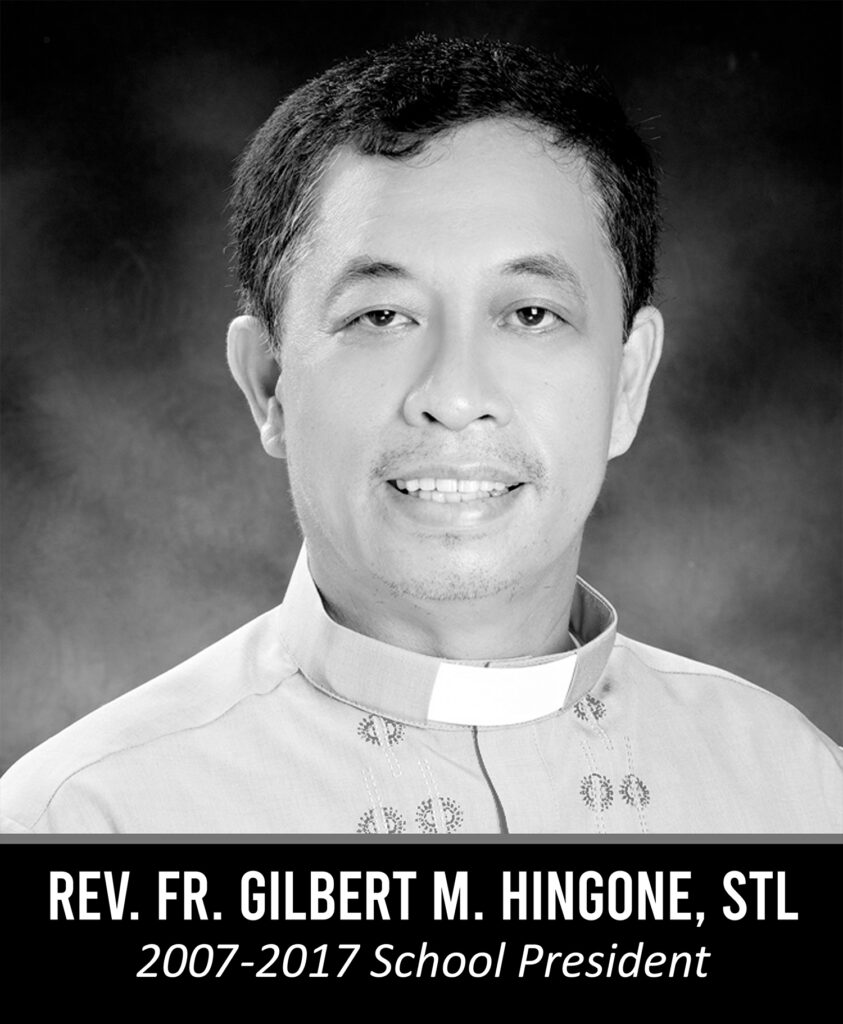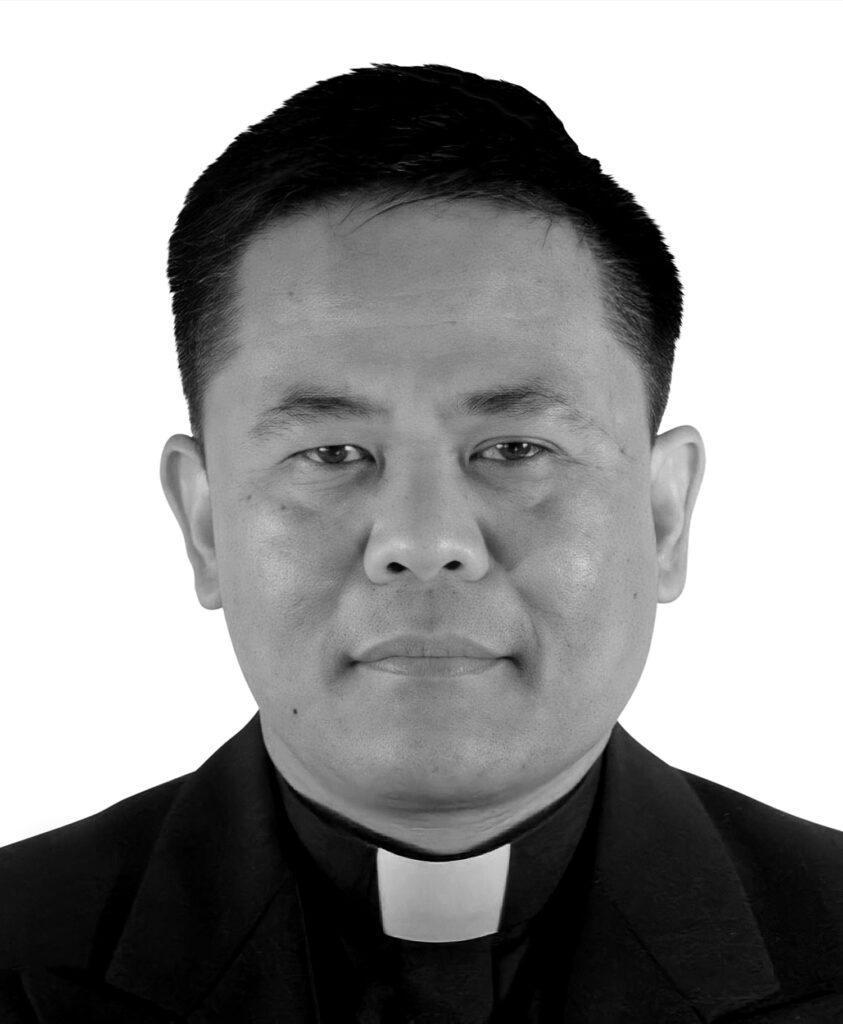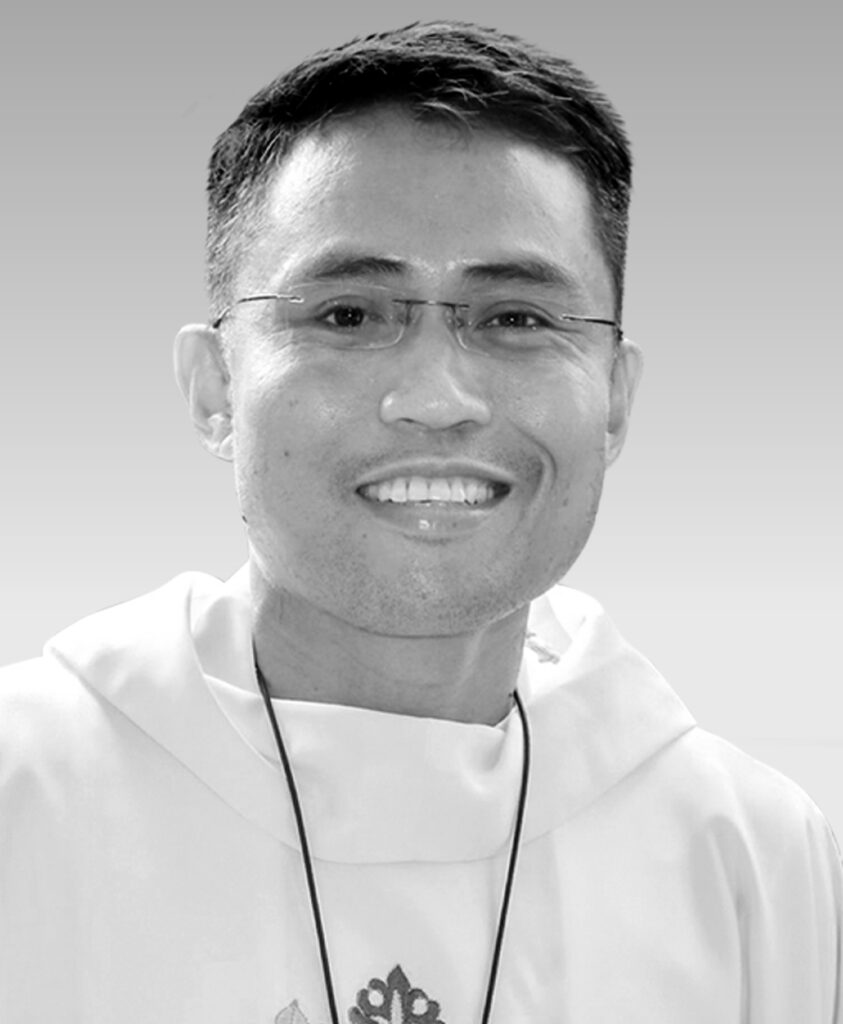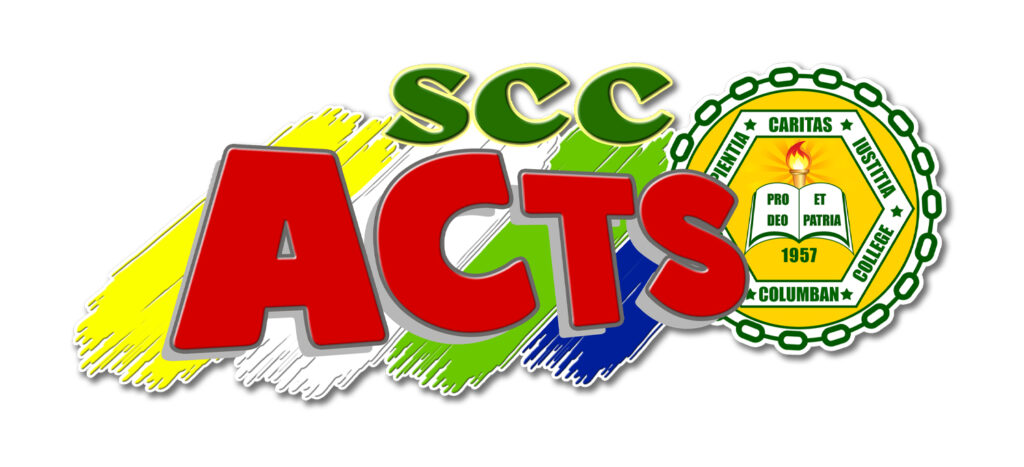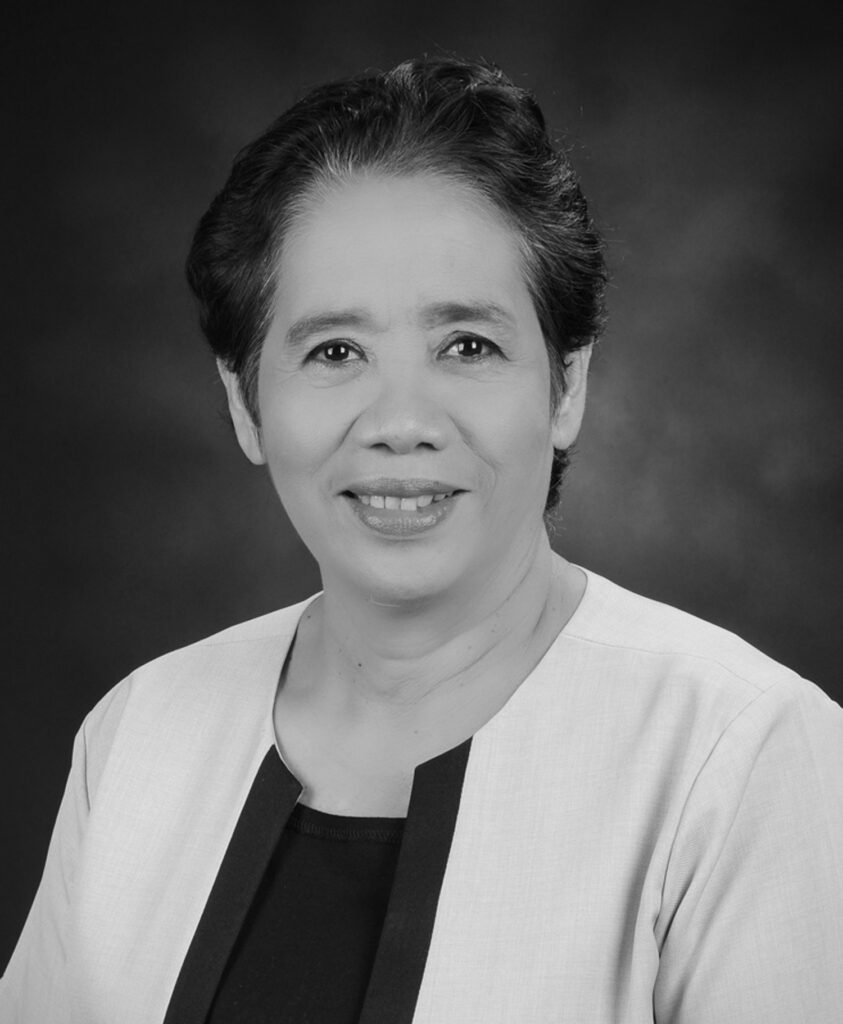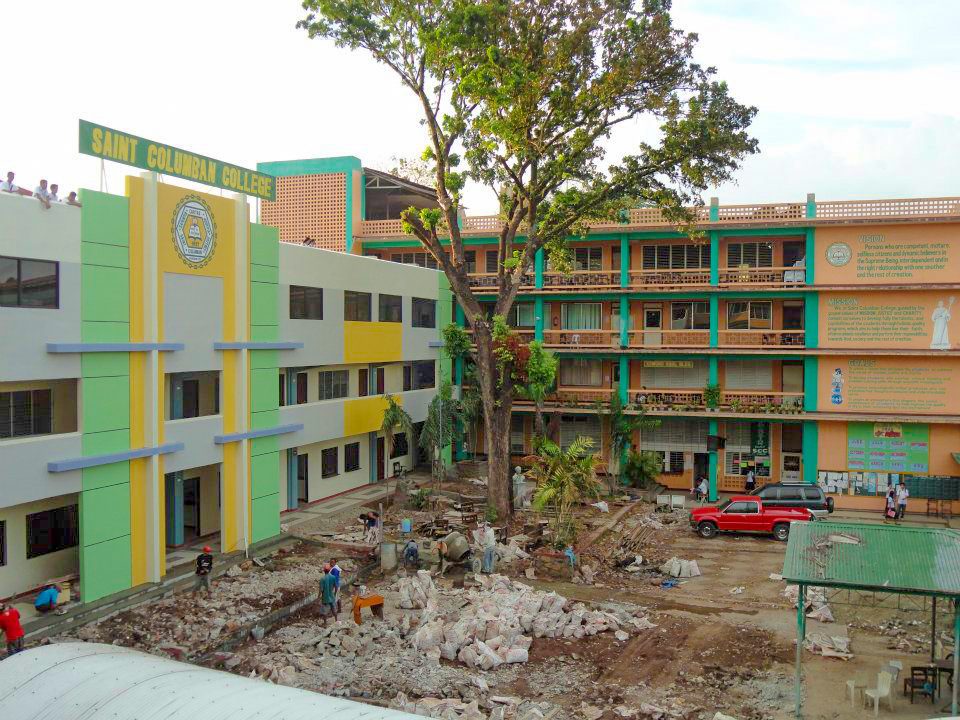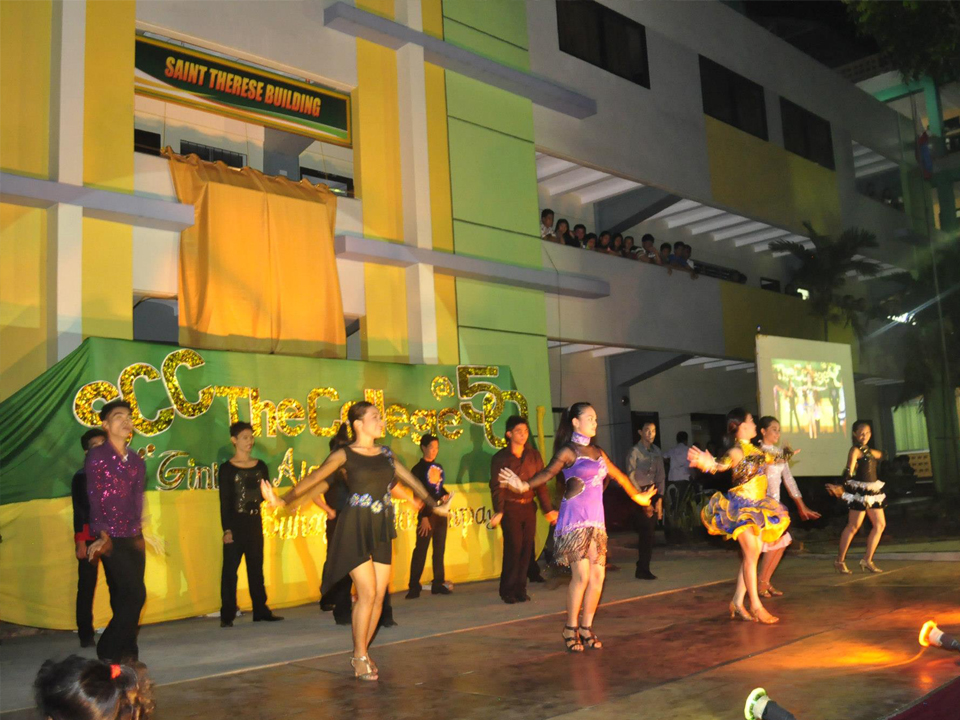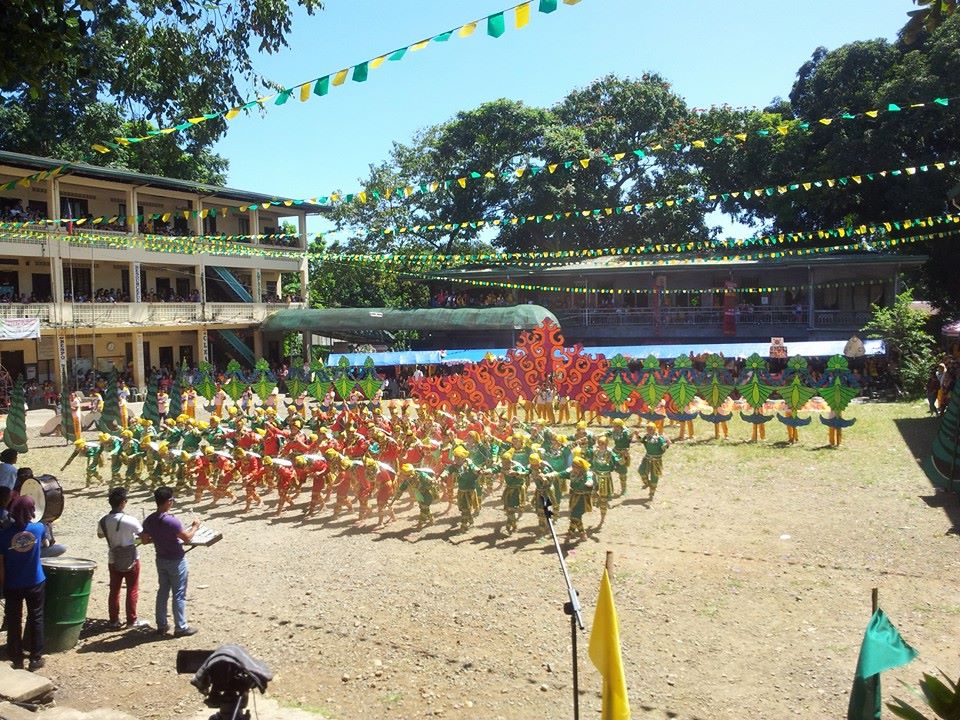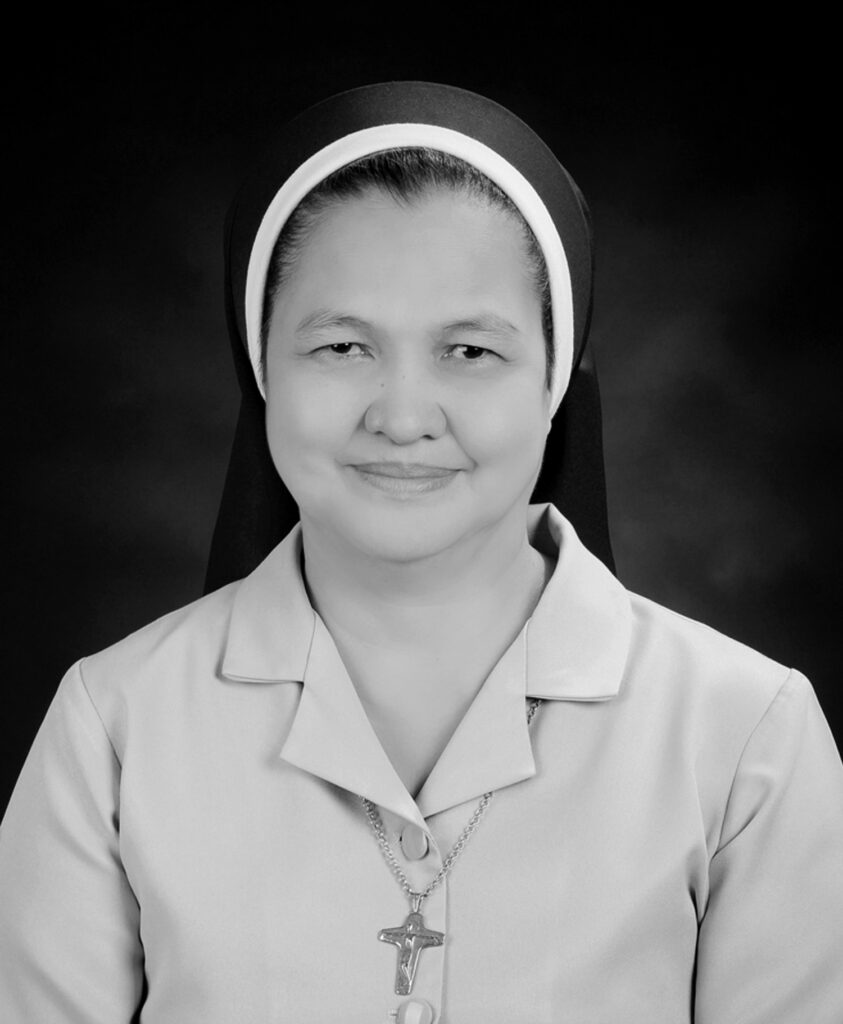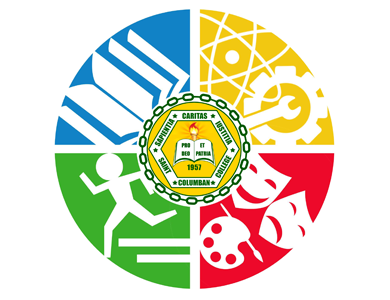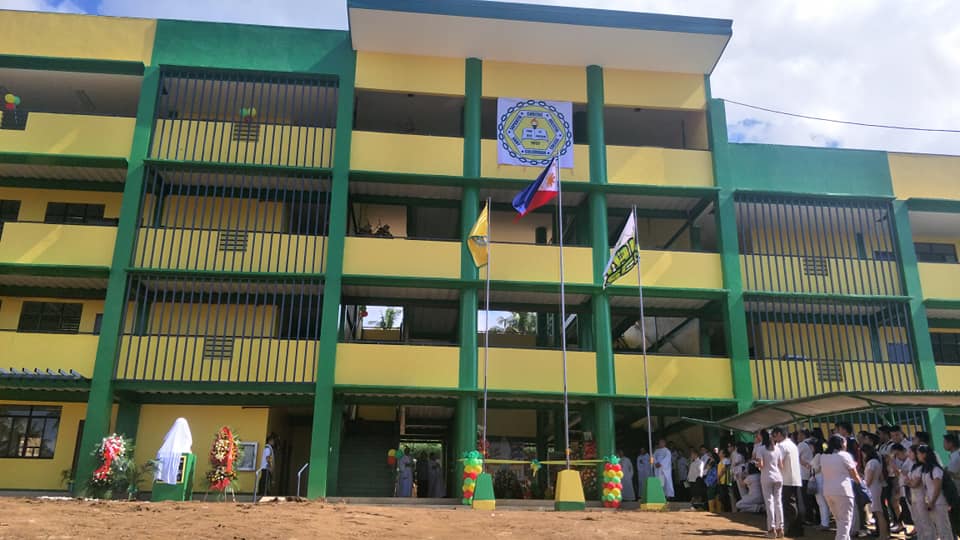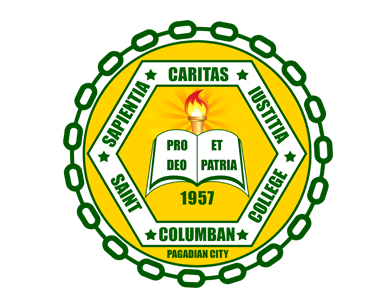SAINT COLUMBAN COLLEGE
HISTORY
Who is
saint columban?
History of Saint Columban College
1957
Fr. Sean Nolan of the Missionary Society of Saint Columban (MSSC) founded Saint Columban School. As the first director of the school, he started with the first and second year high school levels with the assistance of the Sisters of Saint Paul de Chartres (SPC), namely: Sr. Teresita del Niño Jesus Reyes, Sr. Isabel of the Angels Narciso, Sr. Marie Odille Cayetano and Sr. Anne Bacomo.
Sr. Narciso, SPC, became the first School Principal. She also put up and became the first moderator of the school paper, Harp, which name is carried out to this date.
1967
Fr. Edmund Bahl, SSC, was the School Director. The Grade School Department was in full operation with Sr. Eugenie de Marie, SPC, as Principal. The name Saint Columban School was changed to Saint Columban College.
The college department produced her first four (4) graduates in Liberal Arts and first five (5) graduates in Bachelor of Science in Education
1978
The Missionary Society of Saint Columban turned over the ownership of the college to the Diocese of Pagadian through Bishop Jesus B. Tuquib, who served as Chairman of the Board of Trustees. Bishop Tuquib appointed Fr. Jose Maria Luengo, PhD., as the first Filipino priest to become President. Fr. Luengo composed the SCC March and Hymn with contributions from Msgr. Patricio Getigan, HP, and musical scoring by Sr. Agnes Lawrence Catalan, SPC.
The school’s educational philosophy was defined under the Latin precepts of Sapientia, Caritas, and Iustitia (Wisdom, Love, and Justice).
1987
Sr. Marie Renee Javato, SPC, succeeded Sr. Anastasie Dongallo as President.
The SCC College Choir bagged 3rd place at the 15th National Music Competitions for Young Artists (NAMCYA) held at the Cultural Center of the Philippines.
Master of Arts in Education (MAEd) was granted government recognition as an addition to the graduate school program. |
The Youth Development Center (YDC) was inaugurated by His Eminence Ricardo Cardinal Vidal, DD, through the efforts of the VP-Finance, Fr. Francisco Pintac, to cater to the student’s extra-curricular needs in sports, literary arts and other social activities.
“We are Filipino,” a four-act play written and directed by Fr. James Reuter, SJ, was the first grand presentation held at the newly finished YDC.
Two new graduate courses were offered: Master in Business Administration and Master in Public Administration.
Bachelor of Science in Commerce major in Accounting was changed to Bachelor of Science in Accountancy.
The school was granted Accreditation Status, Level 1 in Education, Business, and Arts and Sciences programs by the Philippine Accrediting Association of Schools, Colleges and University (PAASCU)
Fr. Rico Sayson was appointed Finance Officer.
Fr. Teodocio Mendoza succeeded Fr. Sayson as Finance Officer
1995
After 37 years (1957-1995) of their educational apostolate in Pagadian City and Zamboanga del Sur, the SPC sisters turned over the school management to the Diocese of Pagadian.
Msgr. Patricio R. Getigan, the Vicar General of the Diocese of Pagadian, was appointed as President, with Fr. Ariel Lumaad as Vice-President for Finance; Dr. Ma. Flor M. Te, Vice-President for Academic Affairs; and Dr. Beverly Luceño, Vice-President for Non-Academic Affairs.
Patrick Campion building at the college campus was built.
1996
Msgr. Getigan constructed a two-storey building for Grade 1 and Kindergarten classes and Grade School Library. The basketball court (now a covered court) was constructed for basketball tournaments and social functions for the elementary and high school departments.
1998
Bishop Zacharias C. Jimenez, D.D. became President with Fr. Rey B. Mutia as Executive Vice-President and Fr. Ariel Lumaad as Vice-President for Finance. They comprised the Administrative Team together with the Diocesan Schools Superintendent, Sr. Amelia David, ICM.The Middle Level Management (MLM) team was formed, composed of the Deans of Colleges and Heads of Offices.
1999
Fr. Rico P. Sayson was appointed as Vice-President for Finance.
2000
Additional course offerings were granted full recognition status by the Commission of Higher Education (CHED): Bachelor of Science in Information Technology, Bachelor of Science in Hotel and Restaurant Management. The college also offered some TESDA-registered modular programs.
2012
The new St. Therese Building was inaugurated on March 15. The Saint Therese Kindergarten Room in Upper Sibatang Elementary School was inaugurated on March 21.
To respond to the need and shortage of licensed librarian for government, public and private school libraries, SCC offered Master in Library Information Science (MLIS) to encourage library staff all over the region and neighboring provinces to take up further study in library science and take the licensure for librarians.
2014
PAASCU team conducted their preliminary visit in September 15-16.
SCC adopted the Subanen communities of Sitios Lawaan and Dumalian in Brgy. Lourdes, Pagadian City as the second recipient of the school’s CIP.
The founding anniversary of the school was renamed “Panagdait Festival” and the “Panagdait” greeting was institutionalized.
The school intramurals was renamed as PADULA: Pag-inambitay. DUgtungay.Lambigitay (Share.Connect.Commune)
The department days were renamed and institutionalized: Tabo (CBE), Himugso (CCS), Hugyaw (CTEAS); and other school events: Pag-abi-abi (Opening Rite for Classes), Pag-ila-ila (Orientation and Re-orientation for Students), Himamat (Acquaintance Party), Paskuhan (Christmas Fest), Balik-Hangop (Alumni Homecoming), Tikang-Hinabang (FunRun), Panagdait sa Kalinaw (Alternative Classroom Learning Environment for Peace Promotion) etc.
2015
Sr. Ammie R. Adoremos, CB, was appointed as Vice President for the Saint Columban Spirituality and Formation.
Manz Edam C. Jover was the first Grand Student Council President to join the Annual School Planning of administrators and unit heads.
The Grade School department celebrated its Golden Jubilee. The old Grade School building was demolished on April 1 to give way to the new building which was inaugurated in October.
SCC was granted “Candidate Status” in PAASCU accreditation.
2016
The Learning Commons and the Grade School Chapel were inaugurated on August 8.
Preschool classrooms were constructed in Sitio Lawaan, Barangay Lourdes. The Community Involvement Program was renamed Kadugtong-CIP.
The Elementary Chapel was inaugurated to bring the house of worship closer to the elementary pupils and teachers.
In compliance with the K to 12 program, the high school department was restructured creating a four-year Junior High School (JHS) program (Grade 7 to Grade 10) and a two-year Senior High School (SHS) program. Dr. Gilbert Celesio was the JHS Principal, who was succeeded in November 2016 by Ms. Jezebel Flores as JHS Principal and Ms. Remy Richie Jadman was appointed as SHS Principal. SHS offered four tracks: (1) Academic Track with five strands (Science, Technology, Engineering, and Mathematics (STEM) strand; Accountancy, Business and Management (ABM) strand; Humanities and Social Sciences (HUMSS) strand; and General Academic Strand (GAS); (2) Technical and Vocational Track with two strands (Information and Communications Technology (ICT) strand; and Home Economics (HE) strand; and (3) Arts and Design Track; and (4) Sports Track.
2018
Dr. Susan Ramirez succeeded Dr. Agustero as the Vice President for Academic Affairs.
The Quality Assurance Office was revived and was headed by the former VPAA, Dr. Nora Agustero.
The first 660 SHS graduates were produced. For the Academic Track, SHS had 167 graduates from ABM, 39 graduates from GAS, 57 graduates from HUMSS, 282 graduates from STEM. For the Technical Vocational Track, she had 62 graduates from ICT and 48 from HE. The SHS department also produced 5 graduates from the Arts and Design Track.
2019
Most Rev. Bishop Ronald I. Lunas, D.D. was installed as the new bishop of the Diocese of Pagadian and became the new Chairman of the school’s Board of Trustees (BOT) on March 2019.
The new SCC Buenavista campus was inaugurated on June 19, 2019 to house the College of Business Education and some students from other college departments. The new campus was blessed by Bishop Lunas, who emphasized that this event was not only an inauguration of the building, but of the ‘School of the Lord.’ He articulated the important mission of SCC as a Catholic institution, that is to live up to the true meaning of being Christian, CHRIST + IAN (‘I Am Nothing without Christ’). He also named the two buildings as Redeemer and Emmanuel.
SCC entered into a consortium with San Sebastian College-Recoletos (SSCR), Manila for the offering of a Master of Laws in the school with SSCR as the degree granting institution on August 2019. Seventeen (17) prospective members of the faculty of the Law School enrolled in the program.
The Panagdait: Multidisciplinary Research Journal with ISSN: 2718-9171 was launched as the official multidisciplinary research journal of the Graduate School.
2020
The school launched the first volume of Panagdait Journal of Learning, Culture and Educational Trends, with ISSN 2782-9316, as the SCC official Faculty Journal.
The pandemic due to the Corona Virus Disease – 2019 (CoViD-19) hit the country that forced the Philippine government to declare a National State of Calamity leading to the closure of many establishments, including schools. With the resolve of the Department of Education (DepEd) and the Commission on Higher Education (CHED), education has to continue without putting the learners at risk of CoViD-19 exposure by adapting various distance learning modalities. Saint Columban College crafted and implemented its Learning Continuity Plan by adapting flexible learning modality through modular and online classes from Kindergarten to Graduate School and Law School. This is the transition phase to the New Normal Education when basic health protocols were observed in all aspect of academic life.
The Saint Columban Law School with Atty. Danny Valenzuela, MPM, LLM, as Dean and the College of Criminology with Ms. Romelinda Salvacion as Dean, were formally inaugurated on September 12, 2020, with 47 students enrolled in the Juris Doctor (JD) program and 51 students in BS Criminology as the pioneering batch.
The SCC Grand Student Council (GRANSCIL) initiated the creation of the Student Councils Association of Pagadian City (SCAPC) together with student leaders from other higher educational institutions in Pagadian City.
SCC invested heavily for the renovation towards a state-of-the-art Science laboratory and Crime laboratory.
2022
Starting January 2022, limited face-to-face classes were granted with a limited number of students per class depending on classroom capacity and the executive order of the LGU and instructions from the local Inter-Agency Task Force. The pandemic changed the face of education throughout the world. As the trend leads toward full face-to-face classes, teaching-learning approaches evolved and will never be the same again.
The Alper-Doger (AD) Scientific Index included Dr. Naparan (rank 2021) and Dr. Celesio (rank 2191) in the Philippines’ Top 3000 Scientists and put SCC on the map for research, ranking 136 in the Philippines.
SCC responded and joined the call of the Church in journeying together towards a Synodal Church and a Synodal School and aspires not leave anyone behind. SCC was chosen delegate to the Catholic Bishops’ Conference of the Philippines (CBCP) National Synodal Consultation in Tagaytay City in preparation for the Vatican’s Synod of Bishops in 2023.
The second volume of Panagdait Journal of Learning, Culture and Educational Trends, with ISSN 2782-9316 and the SCC official Faculty Journal, was launched on June 2022.
Dr. Mary Jane B. Omandam was installed as the Vice President for Administration.
The school opened the SY 2022-2023 with the resumption of Face-to-Face classes for the college department in August 8, 2022; and for the basic education on August 22,2022. Virtual classes are still offered to the college students. The Graduate School is still having virtual classes with selected programs for the Face-to-Face classes. The Law School adopted hybrid classes (face-to-face and virtual classes).

